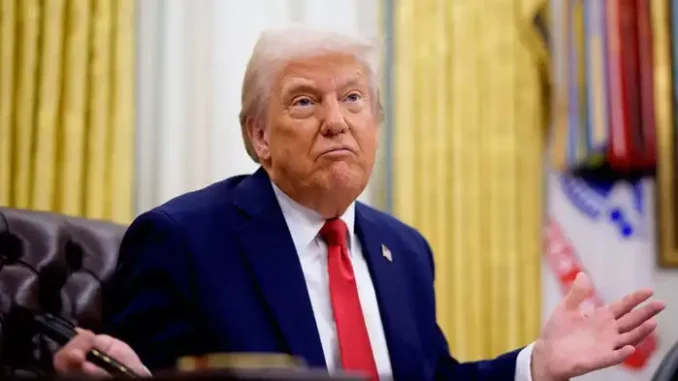
In a notable shift from recent confrontational rhetoric, the U.S. administration has clarified that it does not intend to harm Apple, despite earlier tariff threats from former President Donald Trump. Kevin Hassett, Director of the National Economic Council, made the statement during a CNBC appearance on Tuesday.
Hassett emphasized that the proposed tariff on Apple products should not be seen as a major crisis. “People are portraying this as a disaster, but it’s actually a small tariff designed to help reduce other trade barriers,” he said. “Ultimately, we’ll have to see what happens, but harming Apple is not our objective.”
Trump’s Warning to Apple
Hassett’s remarks come in the wake of Trump’s warning to Apple via his social media platform. The former president had suggested a 25% tariff on iPhones manufactured in India and sold in the U.S., reigniting concerns about Apple’s global production strategy.
Trump posted, “I told Tim Cook a long time ago that iPhones sold in the U.S. should be made in the U.S., not in India or any other country. If that doesn’t happen, Apple will face a 25% tariff.” Apple currently assembles many of its devices in countries like China, India, and Vietnam.
This statement raised fresh questions about whether Apple might reconsider its manufacturing operations in India under pressure from U.S. political forces. Industry experts warned that if iPhones were produced entirely in the U.S., retail prices could soar to around $3,500—or roughly ₹2.9 lakh.
Who Bears the Cost of Tariffs?
Addressing concerns about consumer impact, Hassett argued that Apple would likely absorb the cost of any tariffs, not pass them on to customers. “If you think of Apple as having a fixed-output factory that must sell its inventory, it’s the company—not the consumers—that will shoulder the cost,” he explained. He also pointed to Apple’s flexible supply chain as a factor that would help it manage potential disruptions.
The Administration’s Strategy
Analysts suggest this approach reflects a broader strategy by Trump-era policymakers: urging major corporations to internalize tariff costs rather than transferring them to consumers. Earlier this month, Trump issued a similar directive to Walmart, after the retail giant stated it might have to raise prices due to tariffs.
As of now, Apple has not publicly responded to Hassett’s comments, according to CNBC.

Leave a Reply